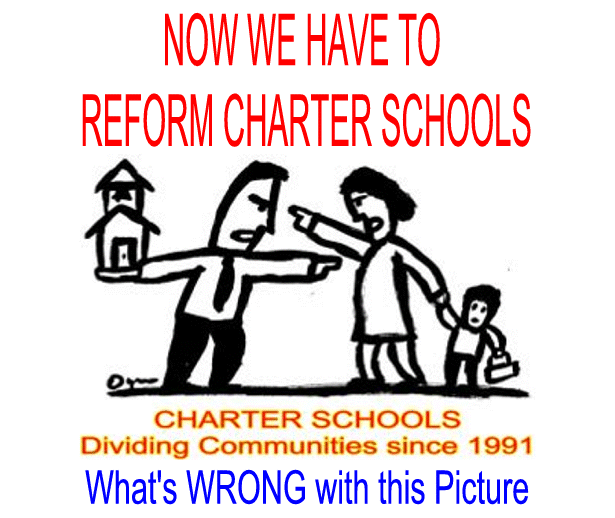The 'A-Plus' Act Gets an F
A plan to block grant education funds to states runs into a big problem: teachers unions.



Churn for Charters is No Solution
The House of Representatives had intended to bring the Student Success Act, the long overdue reauthorization of the Elementary and Secondary Education Act, to a floor vote in late February. The bill would roll back the federal role in K-12 education significantly from the last reauthorization, No Child Left Behind, and would also put an end to the Department of Education’s practice of influencing state education policy through “waiver” relief from No Child Left Behind sanctions. The bill, however, was put on hold amid concern from Congressional conservatives that it did not go far enough in limiting federal involvement.
Conservative critics of the Student Success Act commonly object that it does not include the proposed “A-Plus” amendment. A-Plus is billed as a no-strings-attached block grant, meaning that states could receive federal money but opt out of the federal regulations that come with it. My colleague Michael McShane and I have written elsewhere that the language is not tight enough for that to be the likely reading. In past Congresses, it was clearly a conditional waiver measure, where states are offered block-granted funds in exchange for agreeing to abide by a set of conditions. It’s been notably revised with an eye to cutting federal requirements, but it seems likely that the Department of Education would interpret the latest version expansively.
But, for argument’s sake, let’s assume that A-Plus really would be a no-strings-attached block grant. On its face, it has a strong conservative appeal. States and local leaders are closer to the schools and the communities, so they are in a better position to know how to serve their students. So far so good.
The problem is that the theory behind subsidiarity and the logic behind local control hit a well-nigh immovable brick wall in education policy: teachers unions.
From the time of the Elementary and Secondary Education Act’s passage in 1965 through the late 1990s, states resisted consistent annual testing that could be used to honestly evaluate schools and bring to light how different subgroups were faring. Why? It’s hard to assign a single cause to such a long running phenomena, but one strong hypothesis is that such testing would (and has) reflect very poorly on some teachers and some schools. The strongest power in state education politics had the prerogative to defend the interests of all of its members.
[READ: 'Opting Out' Into School Choice]
Some education reformers see this situation and decide that reform needs to be driven from the top-down. Once you concede the point that teachers unions will block useful reforms, there would seem to be no limiting principle to what the federal government should do to improve schools. But in education, whether a reform is attempted matters a lot less than how it is executed. In our system of government, it is exceedingly difficult for even the best-designed federal initiatives to do very much that will ultimately deliver the hoped-for results for students and families.
There isn’t all that much the federal government can do well in education, but fostering transparency is a relatively simple task – and one that pays dividends.
It’s because of federally-required transparency that charter schools and voucher schools can demonstrate that they work. Citizens can see the results from charter schools such as the Success Academy network. Serving some of the most disadvantaged students in New York City, Success Academy scores in the top 1 percent of all the state’s public schools in math and in the top 3 percent in English and puts its students three years ahead of others from the same background. When Success Academy came under fire from teachers’ union backed New York City Mayor Bill de Blasio, it was able to fight back on simple grounds: We teach kids extraordinarily well, and the numbers prove it.
The fight between Success Academy and de Blasio was heralded as a civil-war in the Democratic Party, auguring the declining influence of the teachers unions. Indeed, public support for teachers A-Plus Act to Fix No Child Left Behind Gets an F - US News:
National Association of Charter School Authorizers (NACSA) Group: 1 in 5 charter schools not doing well enough to stay open
A group that oversees more than half of the nation's 5,600 charter schools said
as many as one in five U.S. charter schools should be shut down because of
poor academic performance.
as many as one in five U.S. charter schools should be shut down because of
poor academic performance.


